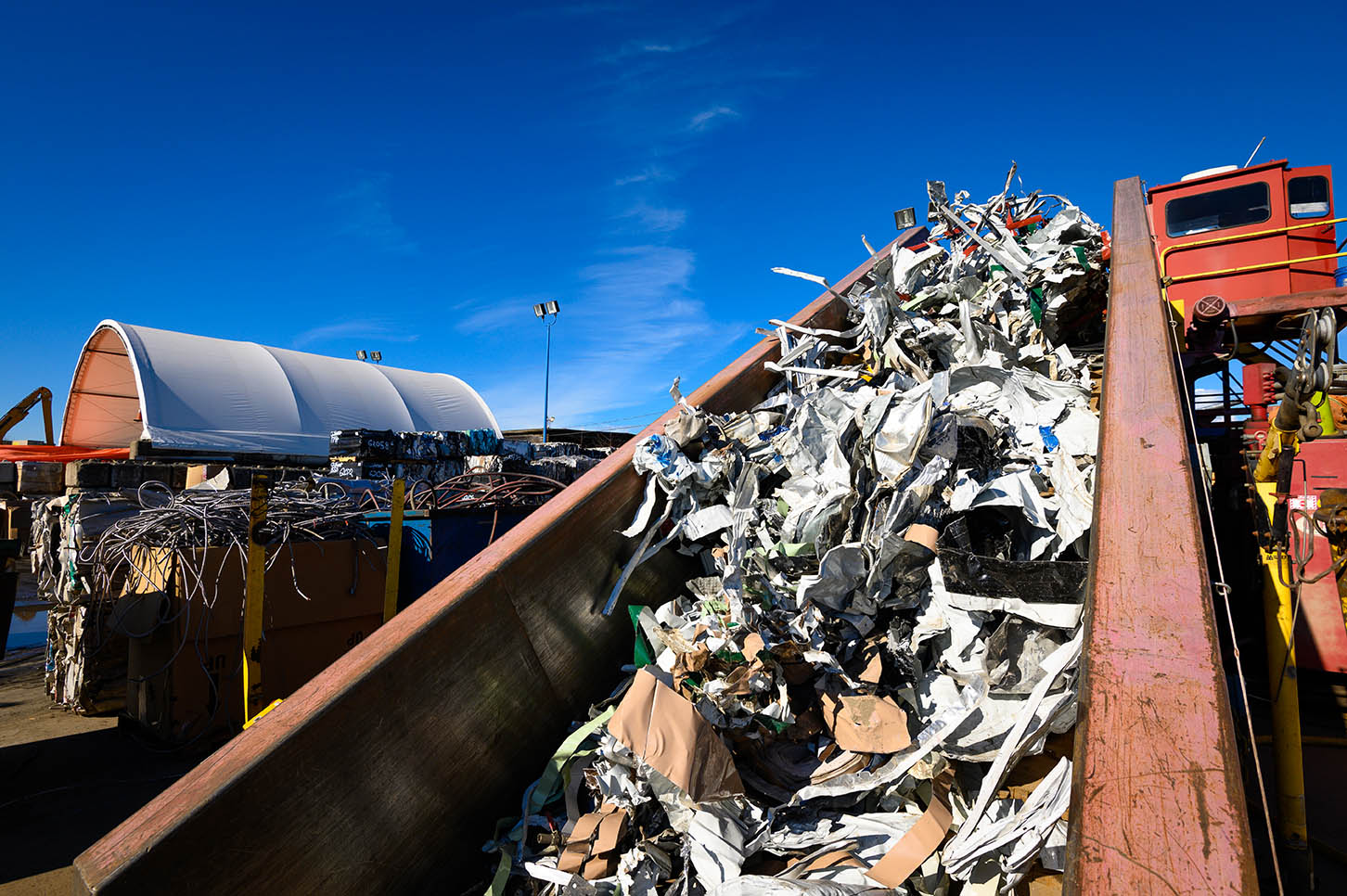
Scrap Metal recycling is seeing exponential growth due to environmental demands by governmental agencies in Canada and Richmond Steel Recycling is at the forefront of that advance.
The Canadian Association of Recycling Industries (CARI) estimates that roughly 45 percent of the world’s annual production of steel, 33 percent of the world’s production of aluminum, and 40 percent of the world’s copper is created from recycled scrap metal. According to the organization, Canadian scrap metal recyclers alone process up to 18 million tonnes of scrap metal each year. Metals, in fact, make up the largest part of the recycling industry.
Unlike other commonly recycled materials (such as plastic), many varieties of metals have the ability to be recycled ad infinitum—they retain their properties throughout the entirety of the recycling process. Through retrieval of scrap metal from end-of-life products, metal recyclers are able to reintroduce the recycled metal as raw material, which may then be produced into new goods by companies.

This is one of the most important benefits of recycling scrap metal; it is a material that does not depreciate, making scrap metal recycling a wholly sustainable practice. Because of its reusable nature, recycling scrap metal allows us to preserve the world’s finite resources, maximizing their use while also reducing the amount of waste that ends up in landfills. For example, the Institute of Scrap Recycling Industries (ISRI) reports that recycling one tonne of steel ultimately conserves 2,500 pounds of iron ore.
Recycling scrap metal conserves energy and the costs associated with a mining operation, as well as reducing greenhouse gas emissions. The Bureau of International Recycling (BIR) reports that when scrap metal such as aluminum is recycled and reused, 4460 kilojoules of energy is saved as a result. According to the same study by BIR, 354 kilotonnes of CO₂ production is prevented through recycling aluminum.
The booming recycling industry (ISRI estimates that the scrap metal industry exceeded $30 Billion in 2017 in the United States alone) has also proven to be an enormous contributor to the Canadian economy. The industry directly employs 34,000 workers and indirectly creates over 85,000 jobs for Canadians. According to CARI, the Canadian recycling industry creates more employment and revenue when compared to the waste and landfill industry by tenfold.
With a number of developed and developing countries having introduced performance targets for recycling, the demand for the practice is more fervent than ever. Recycled materials play a crucial role in supplying the world’s mills and factories. Canada is the second-leading country in scrap metal imports out of 158 total countries, valued at $2.1 Billion.
As a leader in the scrap metal recycling industry, we at Richmond Steel Recycling believe that it is important to provide services that align with the core values of our company. Our commitment to the principles of environmental sustainability guide our work in protecting the planet through recycling scrap metals, helping to reduce greenhouse gas emissions and reducing the amount of waste that ends up in landfills. We recycle a wide range of scrap metals, both ferrous and non-ferrous while aiming to provide world-class customer service.
Learn about the services offered by Richmond Steel Recycling and for more information about scrap metal recycling, please contact your local facility.